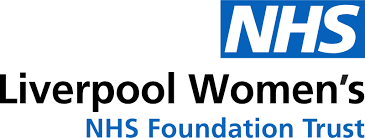Liverpool Women’s Hospital NHS Foundation Trust

The Challenge
Liverpool Women’s Hospital NHS Foundation Trust have a reputation for delivering the highest standards of care for women, babies, and families. Annually delivering over 7,500 babies and carrying out some 50,000 gynaecological procedures, the Trust is also known for its dedication to research and innovation.
Throughout 2022, the Trust had been experiencing ongoing problems with waste segregation. Consistent non-conformances led to their clinical waste provider treating all of their waste as orange-bagged waste for alternative treatment.
This resulted in all bins throughout the hospital being lined with orange bags and the majority of the hospital’s generated waste being overtreated.
With the new NHS Clinical Waste Strategy at hand, Kerri Boyd, the Soft FM and Compliance Manager looked into the treatment options available for the hospital’s clinical waste – she was determined to reintroduce the offensive waste stream to reduce costs and environmental impact.
Kerri knew staff would be keen to do the right thing, but after a long period of bad segregation practices, it was evident that staff training would be essential for making the reintroduction of the offensive waste stream and improved segregation a success.
Our Approach
STEP 1
In April 2023, Kerri Boyd reached out to Sharpsmart for consultancy around the facility’s clinical waste to help them work towards a more sustainable output. Kerri could remember the successful training provided by Sharpsmart several years ago when our reusables were installed.
Since that time, the Trust had navigated the pandemic (all waste treated as infectious) followed by the aforementioned challenges with orange-bagged waste and was in need of a re-education programme.
STEP 2
Sharpsmart took on board the provided information and put together a plan of action – this involved conducting a ward walk with Kerri throughout the different departments and speaking with staff to understand the general issues and key challenges.
STEP 3
During the auditing process, tiger bags (offensive waste sacks) were installed in the right places and Sharpsmart were able to identify what was needed to help the hospital improve its waste management.
The Solution
With the key challenges identified and understood, and tiger bags re-instated throughout the hospital, the Trust were ready to get stuck into making some positive change.
A two-day in-person waste training event was conducted in every department to refresh staff on waste management procedures and correct segregation best practices. Educational materials such as clear signage, posters, and labels were also distributed across the site.
Following the training, Kerri has followed through with monitoring and helped keep staff on track with segregation.
The Outcome
The waste management training and education refresh enabled the Trust to successfully reintroduce the offensive waste stream and follow correct segregation practices.
By the end of June 2023, The Trust was able to reach out to its clinical waste service provider and have the majority of its waste diverted away from alternative treatment.
Within three months of reaching out to Sharpsmart for consultancy and training on clinical waste management, Liverpool Women’s Hospital NHS Foundation Trust had managed to:
- Successfully re-introduce the offensive waste stream.
- Improve clinical waste segregation.
- Reduce costs and CO2e.
- Save 87.5% of generated waste from overtreatment.
